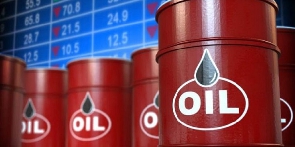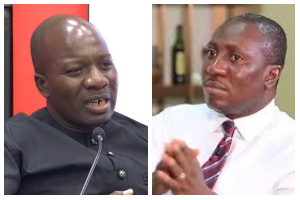A communicator of the New Patriotic Party (NPP), Paul Amaning, is pleased with how the Gold for oil policy has developed thus far.
The approach, he claimed is already bearing fruit in terms of boosting the economy.
First, it would assist in maintaining foreign exchange, particularly the US dollar, and second, it will make it possible for us to stabilize the price of oil products like gasoline and diesel on the local market.
He stated that some progress had been made on both fronts.
“With the price of US dollars and petroleum items reducing since we announced the strategy and began implementing it.
“The average price of petrol at the pump, which was twenty (GH¢20) per liter in the middle of December 2022, is currently thirteen Cedis and eighty pesewas (GH¢13.80) per liter. Diesel is now typically sold for thirteen Cedis and eighty pesewas (GH¢13.80) per liter, a decrease of about ten Cedis per liter from its previous price of more than twenty-three Cedis and seventy pesewas (GH¢23.70) per liter,” he told Onua FM.
He further explained that, “Because the cost of transportation influences the price of everything, we believe that this trend of declining fuel prices will soon be reflected in our daily life. As evidenced by the fluctuating price of petrol, I hope this pattern of price increases and decreases spreads across our retail industry. We all know that prices, particularly for petroleum products, have historically increased in our nation."
The government announced the Gold for Oil strategy to help relieve cedi inflation and bring in cheaper fuel.
The program has so far resulted in the importation of around 100,000 metric tons of fuel into Ghana.
Business News of Tuesday, 28 March 2023
Source: Richard Obeng Bediako, Contributor













